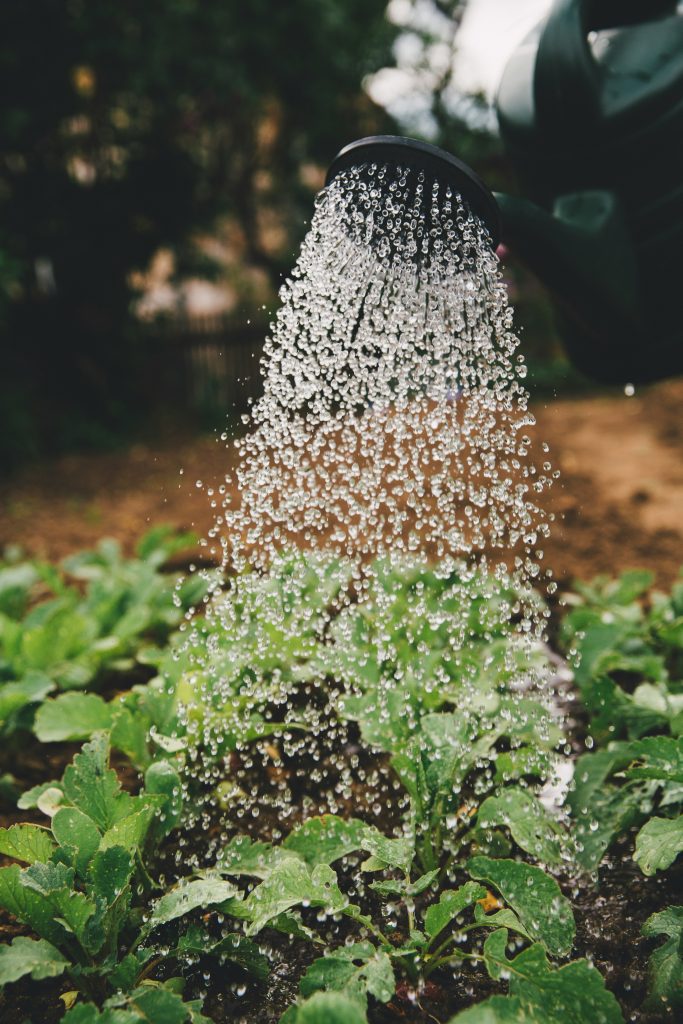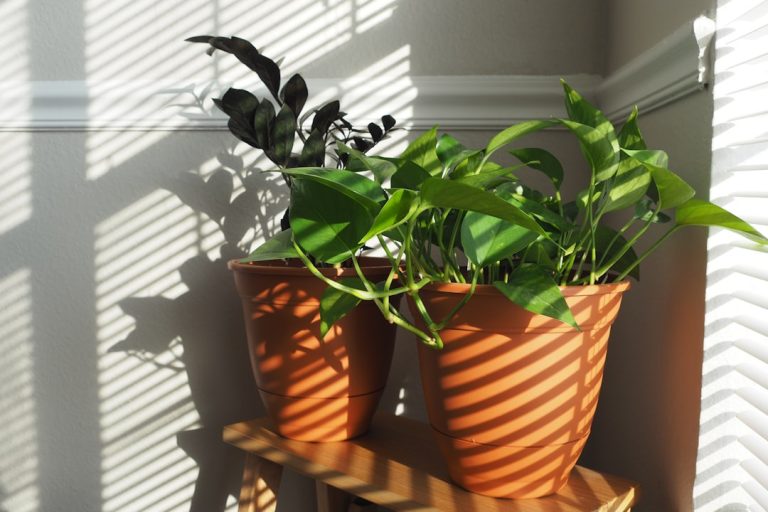Pesticides, while instrumental in modern agriculture and pest control, have far-reaching impacts on the environment. These impacts range from harming non-target species to contributing to pollution and disrupting ecosystems. This blog explores these impacts in detail and provides homeowners with practical, eco-friendly alternatives to improve the situation. Let’s dive into the complexities of pesticide use and explore sustainable practices for a greener planet.
Introduction
Understanding Pesticides
Pesticides are chemicals designed to kill or manage pests. These pests can include insects, weeds, fungi, and rodents. While pesticides have increased agricultural productivity and prevented diseases, their use has also raised significant environmental concerns.
Purpose of the Blog
This blog aims to shed light on the environmental impacts of pesticides and offer actionable advice for homeowners to adopt eco-friendly practices. By understanding the consequences of pesticide use and learning sustainable alternatives, we can contribute to a healthier environment.
The Environmental Impacts of Pesticides
Soil Contamination
Pesticides can persist in the soil for long periods, affecting soil health and fertility. They can kill beneficial microorganisms, disrupt soil ecosystems, and reduce biodiversity. This contamination can lead to long-term changes in soil composition and health.
Water Pollution
Pesticides often run off into water bodies, contaminating rivers, lakes, and groundwater. This pollution can have dire consequences for aquatic life, affecting fish, amphibians, and other wildlife. It can also make water unsafe for human consumption and recreational use.
Air Pollution
Pesticide spraying can release volatile organic compounds (VOCs) into the air, contributing to air pollution. These chemicals can drift from their target areas, affecting non-target plants and animals and posing health risks to humans.
Impact on Non-Target Species
Pesticides do not discriminate between pests and beneficial organisms. They can harm pollinators like bees and butterflies, birds, and other wildlife. The decline in pollinator populations, for instance, can affect plant reproduction and biodiversity.
Development of Resistant Species
Overuse of pesticides can lead to the development of resistant pest species. These pests evolve to survive pesticide applications, leading to a cycle of increased pesticide use and further environmental harm.
Bioaccumulation and Biomagnification
Pesticides can accumulate in the tissues of organisms and magnify through the food chain. This process, known as bioaccumulation and biomagnification, can lead to high pesticide concentrations in top predators, affecting their health and survival.

Eco-Friendly Alternatives for Homeowners
Integrated Pest Management (IPM)
IPM is a holistic approach that combines biological, cultural, physical, and chemical tools to manage pests. It emphasizes prevention and uses pesticides only as a last resort. Homeowners can implement IPM by:
- Monitoring pest activity regularly.
- Using biological controls such as beneficial insects.
- Employing cultural practices like crop rotation and companion planting.
- Applying physical barriers like nets and traps.
For a detailed guide on implementing IPM in your garden, check out Integrated Pest Management: A Sustainable Approach.
Organic Pesticides
Organic pesticides are derived from natural sources and are generally less harmful to the environment. Examples include neem oil, insecticidal soap, and diatomaceous earth. While they are not entirely without impact, they are a more sustainable option.
Companion Planting
Companion planting involves growing certain plants together to naturally repel pests and enhance growth. For instance, planting marigolds with tomatoes can deter nematodes, and basil can repel mosquitoes and flies. Learn more about effective companion planting techniques in our article Companion Planting for a Healthier Garden.
Natural Predators
Encouraging natural predators in your garden can help control pest populations. Ladybugs, spiders, and birds can effectively reduce pest numbers without the need for chemical pesticides. Discover more about attracting natural predators in Attracting Beneficial Insects to Your Garden.
Homemade Remedies
Homemade remedies can be a safe and effective alternative to commercial pesticides. Solutions made from garlic, hot pepper, and soap can deter many common garden pests.
Mulching
Mulching can help control weeds and retain soil moisture, reducing the need for herbicides. Organic mulches also improve soil health as they decompose. Find out more about the benefits of organic mulching in our article The Benefits of Organic Mulching.
Crop Rotation and Diversity
Practicing crop rotation and planting a diverse range of plants can prevent pest infestations and improve soil health. Different crops attract different pests, reducing the chances of a single pest outbreak.
Proper Garden Hygiene
Maintaining a clean garden can prevent pest problems. Remove diseased plants, clear fallen leaves, and avoid overwatering to reduce pest habitats.
Case Studies and Success Stories
Organic Farming
Many organic farms have successfully eliminated the use of synthetic pesticides, demonstrating the viability of sustainable practices. These farms often report healthier soil, increased biodiversity, and improved crop resilience.
One notable example is Rodale Institute’s Organic Farm, which has been pioneering organic farming techniques for decades. Their research shows that organic farming can yield crops comparable to conventional methods while significantly reducing environmental impact.
Urban Gardening Initiatives
Urban gardening projects that use eco-friendly practices are thriving in many cities. These initiatives not only provide fresh produce but also enhance urban biodiversity and green spaces.
For example, the Green City Growers in Boston use sustainable gardening methods, including raised beds and organic soil amendments, to produce fresh, local food. Their practices demonstrate how urban spaces can be transformed into productive, eco-friendly gardens.
Community Supported Agriculture (CSA)
CSA programs encourage sustainable farming practices by connecting consumers directly with local farmers. Participants receive fresh, pesticide-free produce while supporting environmentally friendly agriculture.
A great example is the Full Belly Farm CSA in California. This farm has been practicing organic farming since the 1980s and offers a wide variety of pesticide-free produce to its members. Their commitment to sustainable agriculture helps protect the environment and supports local biodiversity.
Home Gardening Success Stories
Home gardeners have also made significant strides in reducing pesticide use. For instance, a gardener in Portland, Oregon, transformed her backyard into an organic oasis using IPM and companion planting. She reports fewer pest problems and healthier plants, proving that sustainable practices can be successful on a small scale.
Artificial Grass and Pesticide Minimization
Artificial grass can reduce the need for pesticides and water, making it a sustainable alternative for lawns. A study conducted by the University of California, Riverside, found that synthetic turf significantly reduces pesticide runoff and water usage. However, it is essential to choose high-quality, non-toxic artificial grass to avoid environmental and health risks.
For more insights into the benefits and considerations of artificial grass, check out our article Artificial Grass: A Sustainable Lawn Alternative.
Steps Homeowners Can Take Today
Educate Yourself
Understanding the types of pests and the most effective eco-friendly controls is the first step. Many resources are available online, at local libraries, and through community gardening groups.
Start Small
Transitioning to eco-friendly practices can be overwhelming. Start with small changes, such as using organic mulch or planting a few companion plants, and gradually expand your efforts.
Get Involved
Join local gardening clubs or environmental groups to share knowledge, resources, and support. Community involvement can amplify individual efforts and lead to broader environmental benefits.
Support Eco-Friendly Products
Choose products labeled as organic or eco-friendly for your gardening needs. Support companies that prioritize sustainable practices.
Advocate for Change
Engage with local policymakers and community leaders to promote policies that reduce pesticide use and support sustainable gardening practices.
Conclusion
The environmental impacts of pesticides are profound and far-reaching, affecting soil, water, air, and wildlife. However, homeowners have the power to make a difference by adopting eco-friendly practices. By implementing integrated pest management, using organic pesticides, and supporting biodiversity, we can contribute to a healthier environment. Every small step counts towards a greener, more sustainable world.
Frequently Asked Questions (FAQs)
1. What are the most common types of pesticides used in home gardens?
The most common types of pesticides used in home gardens include:
- Insecticides: These target insects and can range from broad-spectrum chemicals that affect many insect species to more specific formulations that target only certain pests.
- Herbicides: Used to control unwanted plants or weeds.
- Fungicides: Aim to control fungal problems like mold, mildew, and rust.
- Rodenticides: These are used to control rodents but can also pose significant risks to non-target animals and humans.
2. Are organic pesticides completely safe for the environment?
While organic pesticides are generally safer than synthetic ones, they can still impact the environment if overused or misapplied. Organic pesticides can affect non-target organisms and should be used as part of an integrated pest management strategy. It’s essential to follow guidelines for safe use and consider non-chemical alternatives first.
3. How can I attract natural predators to my garden?
Attracting natural predators to your garden can be achieved by:
- Planting a variety of flowers: Different flowers attract beneficial insects like ladybugs, lacewings, and hoverflies.
- Providing water sources: A shallow dish of water can attract birds and beneficial insects.
- Avoiding broad-spectrum pesticides: These can kill beneficial insects as well as pests.
- Creating habitats: Plant native shrubs, grasses, and trees to provide shelter and food for predators.
For more tips, read our article on Attracting Beneficial Insects to Your Garden.
4. What is the difference between bioaccumulation and biomagnification?
- Bioaccumulation: This refers to the build-up of pesticides or other chemicals in an organism’s tissues over time. Even if the organism is exposed to small amounts of the chemical, it can accumulate to harmful levels.
- Biomagnification: This is the process where the concentration of a chemical increases as it moves up the food chain. Predators at the top of the food chain, such as birds of prey, can end up with very high concentrations of pesticides, which can affect their health and reproductive success.
5. Can companion planting really deter pests?
Yes, companion planting can be effective in deterring pests. Certain plants can repel pests, mask the scent of vulnerable plants, or attract beneficial insects that prey on pests. For example, marigolds can repel nematodes, and basil can deter mosquitoes and flies. Companion planting is a sustainable practice that can reduce the need for chemical pesticides.
Learn more about this technique in our detailed guide Companion Planting for a Healthier Garden.
6. What are some examples of homemade pest control remedies?
Homemade pest control remedies are easy to make and can be effective against various pests. Some examples include:
- Garlic spray: A mixture of crushed garlic and water can repel many insects.
- Hot pepper spray: Made from hot peppers and water, this spray can deter insects and animals.
- Soap solution: A simple mixture of soap and water can help control soft-bodied insects like aphids.
These remedies are safe, cost-effective, and eco-friendly alternatives to commercial pesticides.
7. How does mulching help in pest control?
Mulching helps in pest control by:
- Suppressing weeds: A thick layer of mulch prevents weed seeds from germinating, reducing the need for herbicides.
- Retaining soil moisture: Mulch helps maintain soil moisture, reducing stress on plants and making them less susceptible to pests.
- Improving soil health: Organic mulch decomposes and adds nutrients to the soil, promoting healthy plant growth.
For more information on the benefits of mulching, check out our article The Benefits of Organic Mulching.
8. Are there any plants that naturally repel pests?
Yes, several plants have natural pest-repellent properties. Some examples include:
- Marigolds: Repel nematodes and other pests.
- Basil: Deters mosquitoes and flies.
- Lavender: Repels moths, fleas, and mosquitoes.
- Mint: Keeps away ants and mice.
Planting these in your garden can help reduce pest problems naturally.
9. What should I do if I have a severe pest infestation?
If you have a severe pest infestation, consider the following steps:
- Identify the pest: Proper identification is crucial for effective control.
- Consult a professional: An expert in eco-friendly pest control can offer solutions that minimize environmental impact.
- Use targeted treatments: Opt for treatments that target specific pests rather than broad-spectrum pesticides.
10. How can I learn more about eco-friendly gardening?
To learn more about eco-friendly gardening, explore resources such as:
- EcoFriendlyHomeandGarden.com: Our site offers a wealth of articles and guides on sustainable gardening practices.
- Local gardening clubs: Joining a club can provide hands-on experience and advice.
- Online forums: Engage with online communities dedicated to eco-friendly gardening.
By adopting these eco-friendly practices, homeowners can play a crucial role in reducing the environmental impacts of pesticides and promoting a healthier planet. Together, we can make a difference, one garden at a time.
YouTube Videos
By integrating these practices into your gardening routine, you can help create a more sustainable and environmentally friendly garden.


